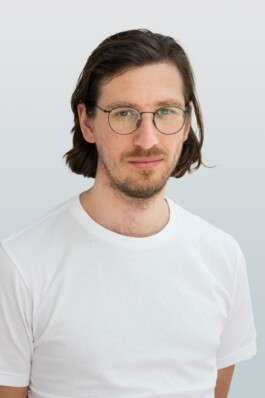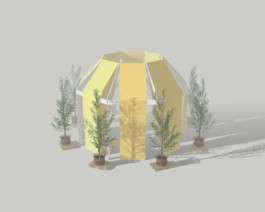
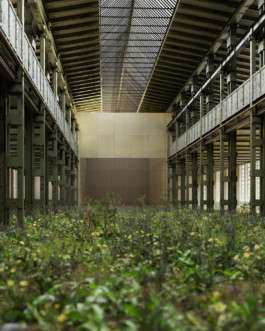
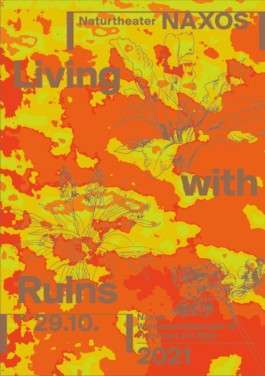
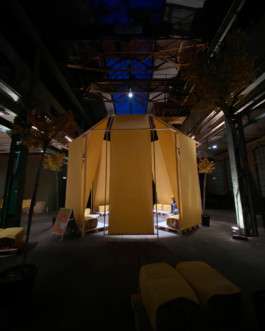
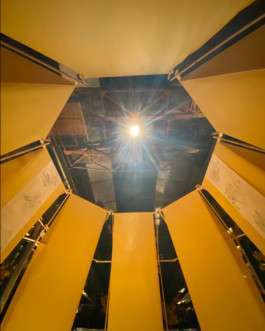
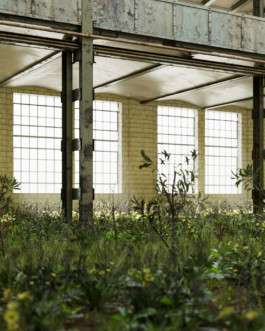
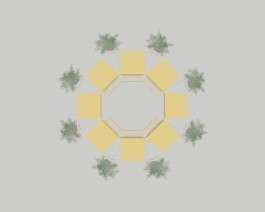
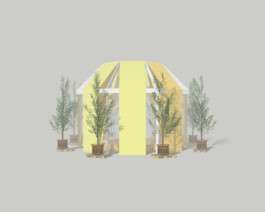
Living with Ruins
www.naturtheaternaxos.de, Frankfurt 2021
with Arthur de Buren and Manuela Mehrwald
The Naturtheater Naxos understands itself as an invitation to talk and think. How do we want to and can we reshape our public urban life in the face of the drastically changing environment in the urban "ruins of capitalism"? We believe that cultural institutions should be given more responsibility here. As places of public life, they have the opportunity to involve people in the social and climate co-creation of the urban public sphere. Surrounded by ginkgo trees, the Naturtheater Naxos pavilion with its seating circle made of straw bales offers up to 50 people the opportunity to participate in performances, panels, workshops and lectures on climate and sustainability discourse.
Künstlerische Leitung: Jakob Engel / Künstlerische Co-Leitung: Jan Philipp Stange / Konzept: Arthur de Buren, Jakob Engel, Manuela Mehrwald / Bühnenbild: Arthur de Buren / Technische Leitung: Nils Wildegans / Koordination und Öffentlichkeitsarbeit: Dörthe Krohn / 3D Animation: Stefan Klosterkötter / Assistenz: Ina Trenk / Redaktion: Manuela Mehrwald / Lektorat: Jeanne Eschert / Design: Studio Laurens Bauer / Illustration: Anton Engel
Ein Projekt von studioNAXOS in Kooperation mit dem Theater Willy Praml und NAXOS. Gefördert vom Fonds Darstellende Künste aus Mitteln der Beauftragten der Bundesregierung für Kultur und Medien im Rahmen von NEUSTART KULTUR und vom Kulturamt der Stadt Frankfurt am Main.
Life in big cities will not be the same worldwide in the future. If we look at Frankfurt, it can be assumed that the climatic conditions in 2050 will resemble the current ones in San Marino. How can urban societies face the new climatic and at the same time social challenges? Where can we come together for the collective thinking and action needed to respond to these developments?
The urban public needs places that meet these new needs. Places where we can meet, dwell, exchange and align. Places that foster a shared discourse that discusses the changes we are facing. Places, in other words, that become public laboratories where we can test out a climate-appropriate and social approach.
In Germany alone, there are 150 publicly supported theaters, 220 private theaters and two dozen production houses. In addition, there are up to 80 opera houses - almost as many as in the entire rest of the world. Some of them could be described as exclusive cultural ruins. These houses, some of which are fully air-conditioned, will now have to ask themselves: how they can redesign their operations to be climate-friendly, how they can produce in a climate-neutral way, and how they can make their houses fundamentally accessible to a broad public.
The impetus for this can be provided by theoretical approaches, such as the thought experiments of the philosopher Bruno Latour, or the scientific findings of the anthropologist Anna Tsing. In his treatises, Bruno Latour expands the social question to a geo-social and geo-political question. Which means that political as well as social decisions can no longer be made independently of geo-scientific findings. Thus, he distinguishes between the earth we live on and the earth we live from. Contrary to the iconic notion of living on a blue planet called Earth, Latour focuses our awareness on the critical zones in which we find ourselves. We live out of touch with the earth and its needs, and at odds with political and social structures. Anna Tsing's treatise "The Mushroom at the End of the World. On Living in Ruins of Capitalism" directs our attention to the environment shaped by modernity - for example, of architectural, ecological, structural origin. It pleads for not merely considering those as destroyed and final. Like mushrooms making their way of life in contaminated places, she suggests that we too try to develop new ways of living. And thus find our way to a life with the ruins of capitalism. A strategy that tries to bring us closer to the earth in Latour's sense - to become terrestrial within critical zones that are contaminated in many ways.
We need a new spatial contract. A renegotiation that takes into account human as well as non-human actors and ecological constellations. Against a backdrop of growing political divides and increasing economic inequalities, we must begin to imagine spaces. The kind of spaces where we can come together in an intergenerational and inclusive way.
For example, why aren't theaters open all day? A public place by definition, that is, a place that is characterized precisely by a public sphere. This could mean that, except for offices and warehouses, there are no more purely exclusive spaces. The reasons for people to be in such a theater could be manifold: they could gather here, educate, but also eat, drink, play, work, garden and watch theater, music, literature, performance or cinema, or simply linger. The place could be more like a covered garden in people's perception, rather than an exclusive palace of culture. A garden that internalizes and lives diversity, and understands the reappraisal of structural discrimination in institutions, as part of becoming climate-responsive. Thus, the use of the building could both structurally map a climate neutrality and translate it into a new cultural practice.
"Living with Ruins" in the context of Naturtheater Naxos sees itself as a prelude to rethinking and negotiating theater. In the spirit of Donna Haraway's biologist, who emphasizes: "we become with each other or we do not become at all" - we no longer just make or watch theater: we become theater.
Manuela Mehrwald & Jakob Engel








Living with Ruins
www.naturtheaternaxos.de, Frankfurt 2021
with Arthur de Buren and Manuela Mehrwald
The Naturtheater Naxos understands itself as an invitation to talk and think. How do we want to and can we reshape our public urban life in the face of the drastically changing environment in the urban "ruins of capitalism"? We believe that cultural institutions should be given more responsibility here. As places of public life, they have the opportunity to involve people in the social and climate co-creation of the urban public sphere. Surrounded by ginkgo trees, the Naturtheater Naxos pavilion with its seating circle made of straw bales offers up to 50 people the opportunity to participate in performances, panels, workshops and lectures on climate and sustainability discourse.
Künstlerische Leitung: Jakob Engel / Künstlerische Co-Leitung: Jan Philipp Stange / Konzept: Arthur de Buren, Jakob Engel, Manuela Mehrwald / Bühnenbild: Arthur de Buren / Technische Leitung: Nils Wildegans / Koordination und Öffentlichkeitsarbeit: Dörthe Krohn / 3D Animation: Stefan Klosterkötter / Assistenz: Ina Trenk / Redaktion: Manuela Mehrwald / Lektorat: Jeanne Eschert / Design: Studio Laurens Bauer / Illustration: Anton Engel
Ein Projekt von studioNAXOS in Kooperation mit dem Theater Willy Praml und NAXOS. Gefördert vom Fonds Darstellende Künste aus Mitteln der Beauftragten der Bundesregierung für Kultur und Medien im Rahmen von NEUSTART KULTUR und vom Kulturamt der Stadt Frankfurt am Main.
Life in big cities will not be the same worldwide in the future. If we look at Frankfurt, it can be assumed that the climatic conditions in 2050 will resemble the current ones in San Marino. How can urban societies face the new climatic and at the same time social challenges? Where can we come together for the collective thinking and action needed to respond to these developments?
The urban public needs places that meet these new needs. Places where we can meet, dwell, exchange and align. Places that foster a shared discourse that discusses the changes we are facing. Places, in other words, that become public laboratories where we can test out a climate-appropriate and social approach.
In Germany alone, there are 150 publicly supported theaters, 220 private theaters and two dozen production houses. In addition, there are up to 80 opera houses - almost as many as in the entire rest of the world. Some of them could be described as exclusive cultural ruins. These houses, some of which are fully air-conditioned, will now have to ask themselves: how they can redesign their operations to be climate-friendly, how they can produce in a climate-neutral way, and how they can make their houses fundamentally accessible to a broad public.
The impetus for this can be provided by theoretical approaches, such as the thought experiments of the philosopher Bruno Latour, or the scientific findings of the anthropologist Anna Tsing. In his treatises, Bruno Latour expands the social question to a geo-social and geo-political question. Which means that political as well as social decisions can no longer be made independently of geo-scientific findings. Thus, he distinguishes between the earth we live on and the earth we live from. Contrary to the iconic notion of living on a blue planet called Earth, Latour focuses our awareness on the critical zones in which we find ourselves. We live out of touch with the earth and its needs, and at odds with political and social structures. Anna Tsing's treatise "The Mushroom at the End of the World. On Living in Ruins of Capitalism" directs our attention to the environment shaped by modernity - for example, of architectural, ecological, structural origin. It pleads for not merely considering those as destroyed and final. Like mushrooms making their way of life in contaminated places, she suggests that we too try to develop new ways of living. And thus find our way to a life with the ruins of capitalism. A strategy that tries to bring us closer to the earth in Latour's sense - to become terrestrial within critical zones that are contaminated in many ways.
We need a new spatial contract. A renegotiation that takes into account human as well as non-human actors and ecological constellations. Against a backdrop of growing political divides and increasing economic inequalities, we must begin to imagine spaces. The kind of spaces where we can come together in an intergenerational and inclusive way.
For example, why aren't theaters open all day? A public place by definition, that is, a place that is characterized precisely by a public sphere. This could mean that, except for offices and warehouses, there are no more purely exclusive spaces. The reasons for people to be in such a theater could be manifold: they could gather here, educate, but also eat, drink, play, work, garden and watch theater, music, literature, performance or cinema, or simply linger. The place could be more like a covered garden in people's perception, rather than an exclusive palace of culture. A garden that internalizes and lives diversity, and understands the reappraisal of structural discrimination in institutions, as part of becoming climate-responsive. Thus, the use of the building could both structurally map a climate neutrality and translate it into a new cultural practice.
"Living with Ruins" in the context of Naturtheater Naxos sees itself as a prelude to rethinking and negotiating theater. In the spirit of Donna Haraway's biologist, who emphasizes: "we become with each other or we do not become at all" - we no longer just make or watch theater: we become theater.
Manuela Mehrwald & Jakob Engel

